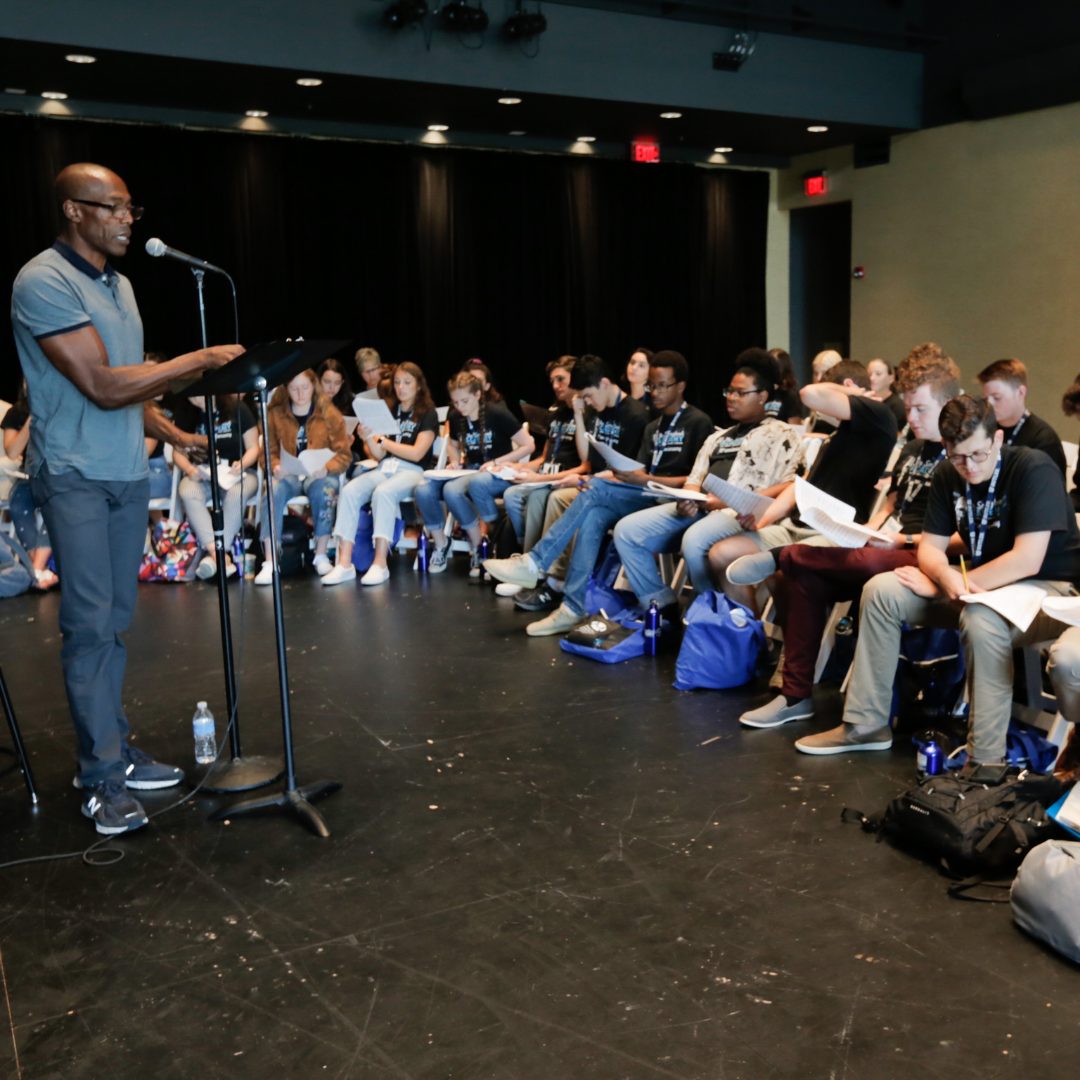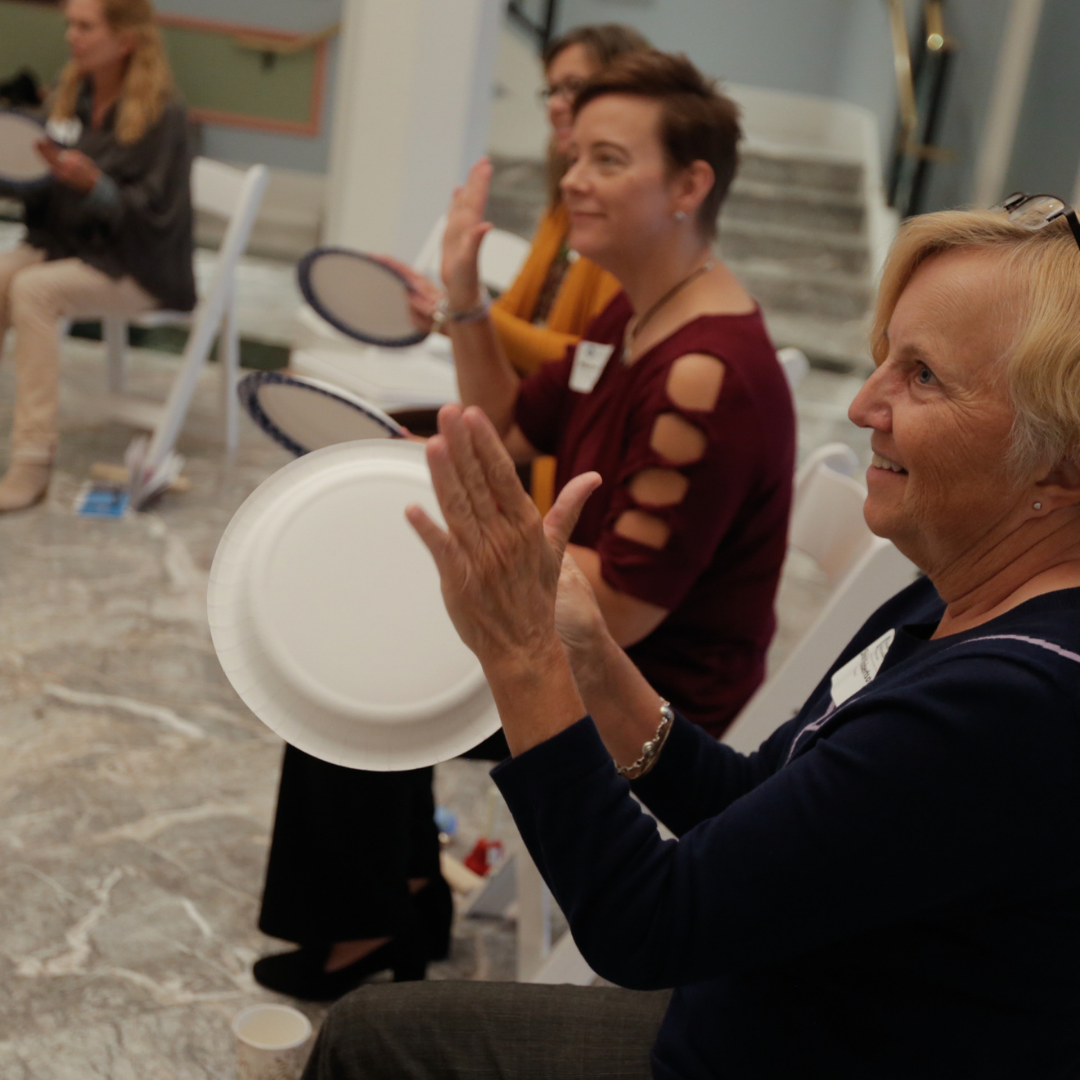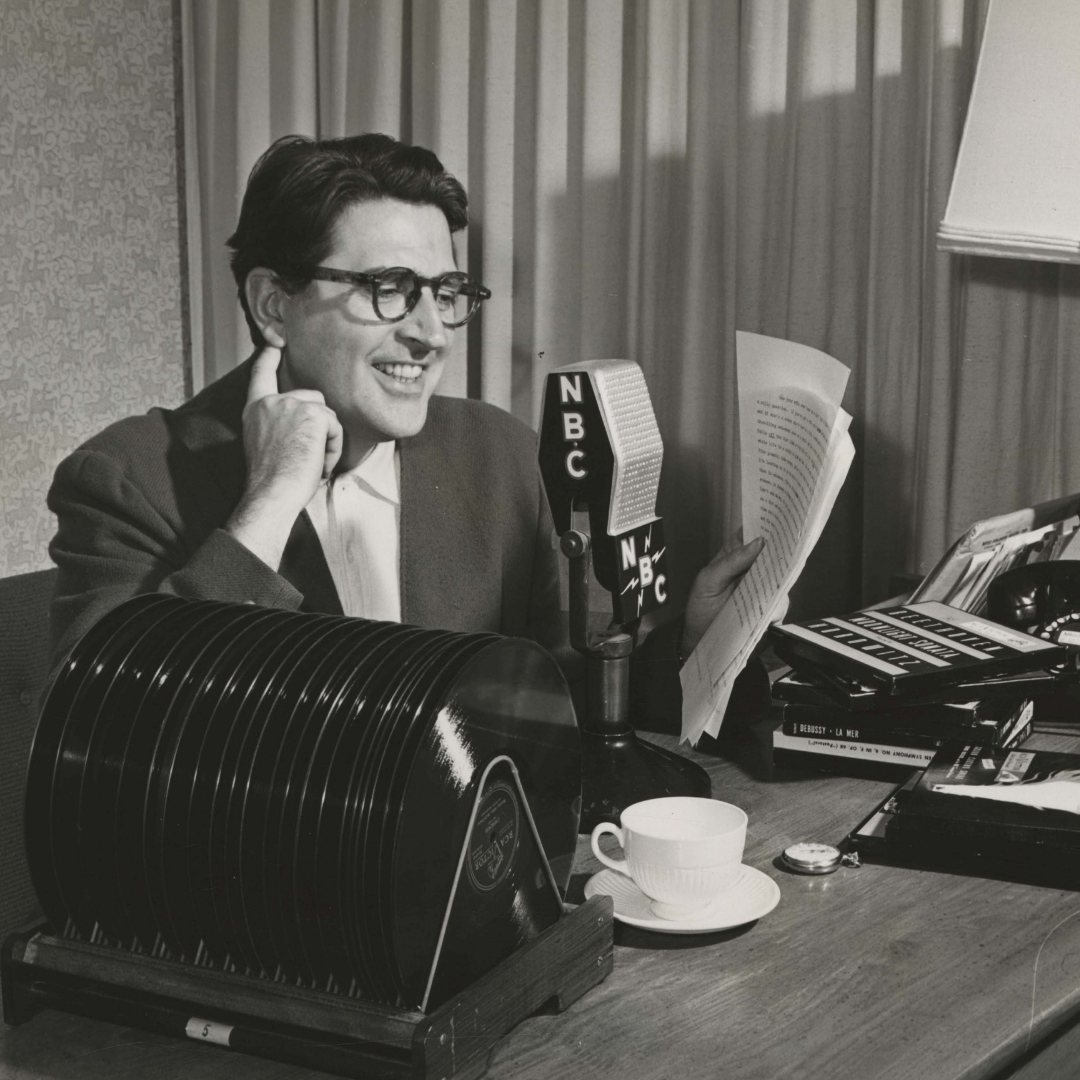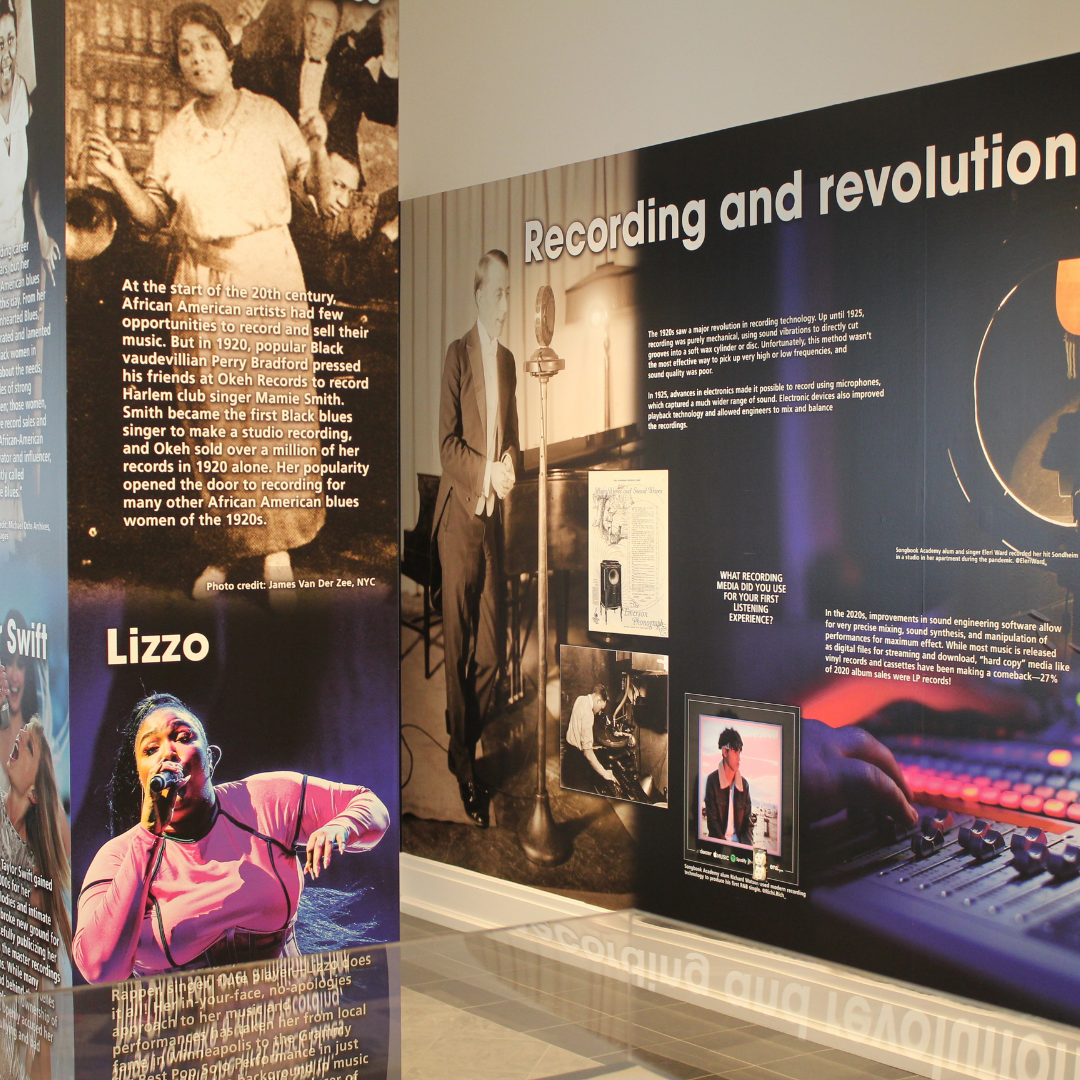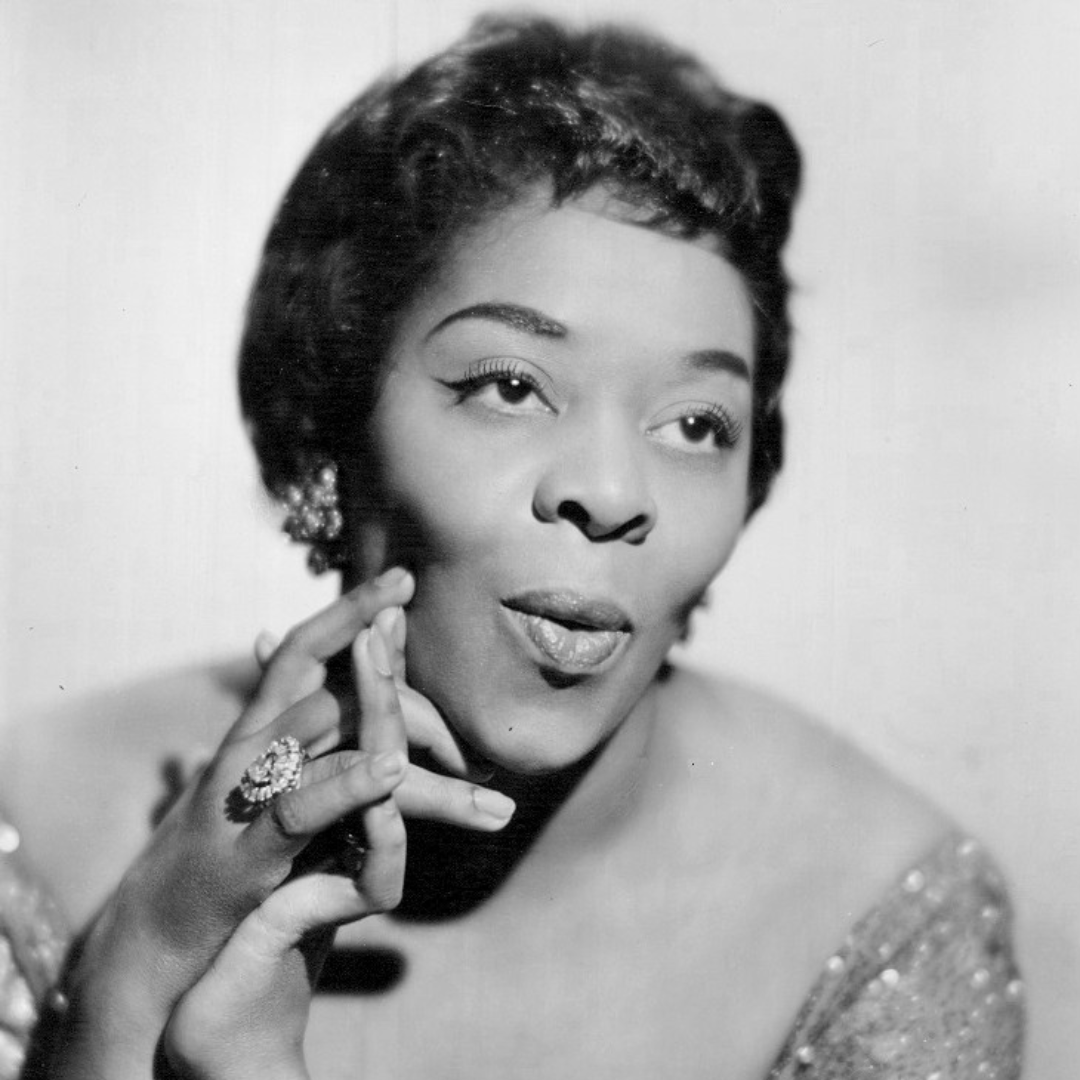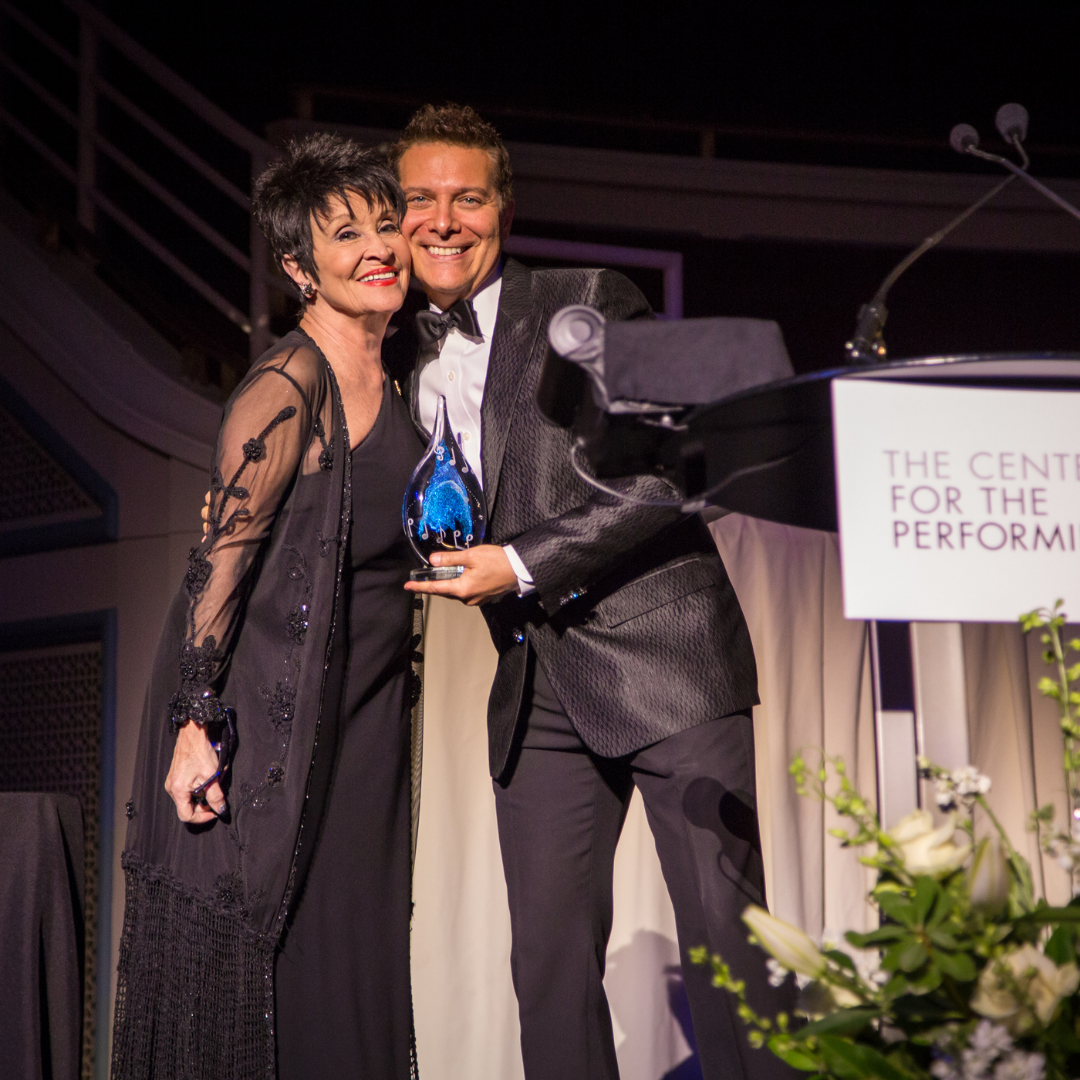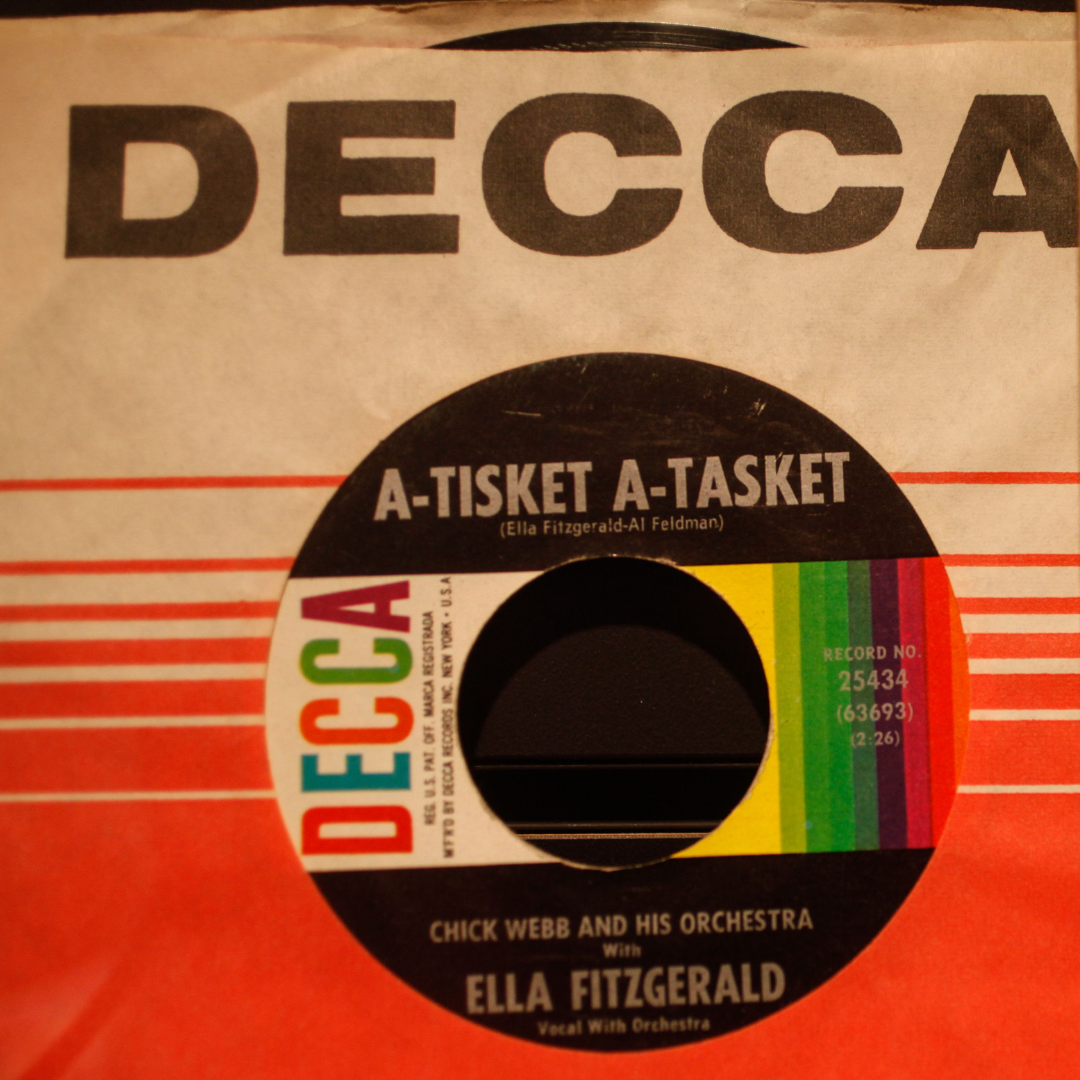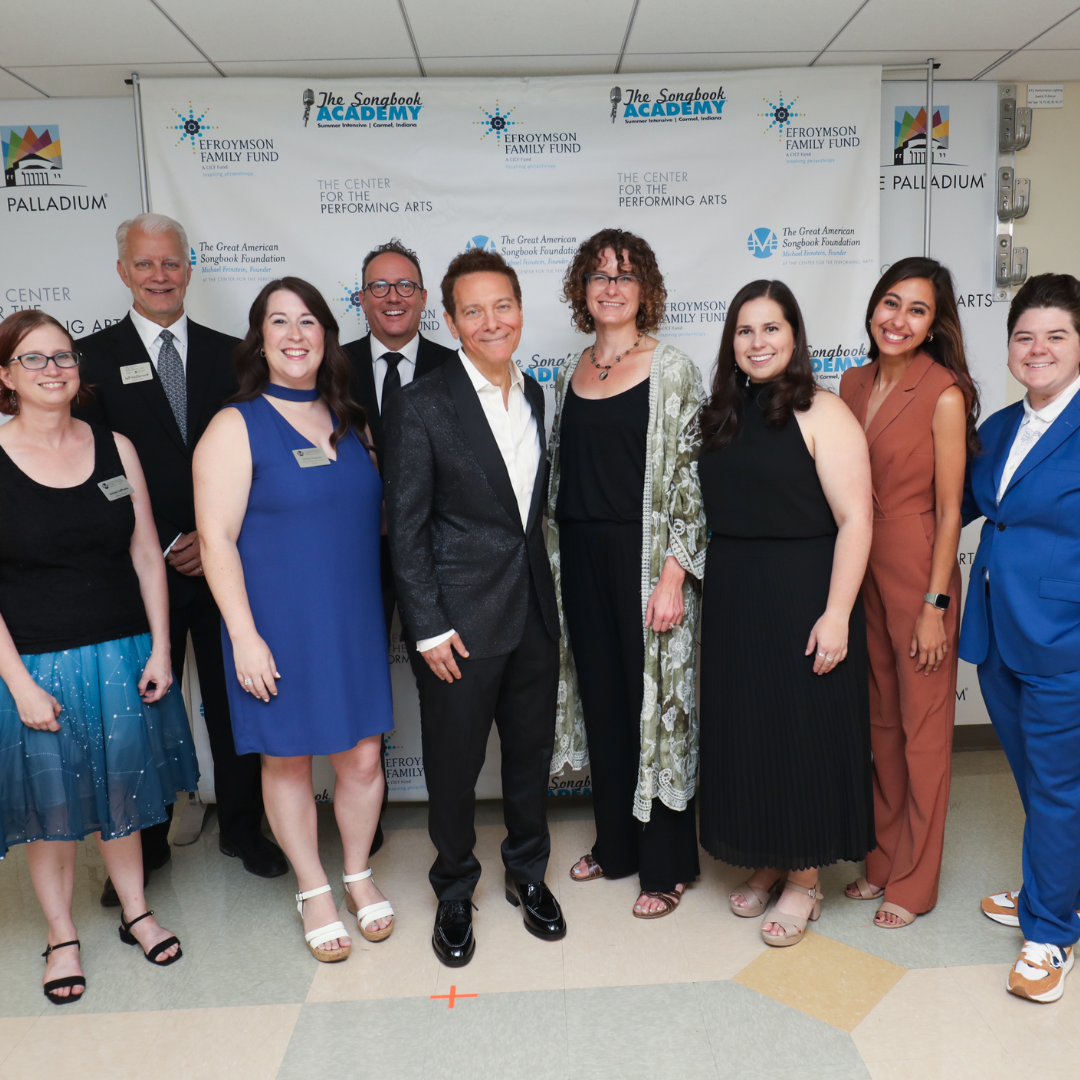Our Mission
The Great American Songbook Foundation is a 501(c)3 nonprofit organization with a mission to inspire and educate by celebrating the Great American Songbook.
Your Individual Partner contribution is 100% tax-deductible to the fullest extent allowed by law. View the Foundation's Gift Acceptance Policy.
Contact Us
Questions about Individual Giving:
Jo Garcia Acheson
317.844.9454
JGarcia@TheSongbook.org
Questions about Corporate or Foundation Giving:
Dave Wilson
317.819.3531
DWilson@TheSongbook.org
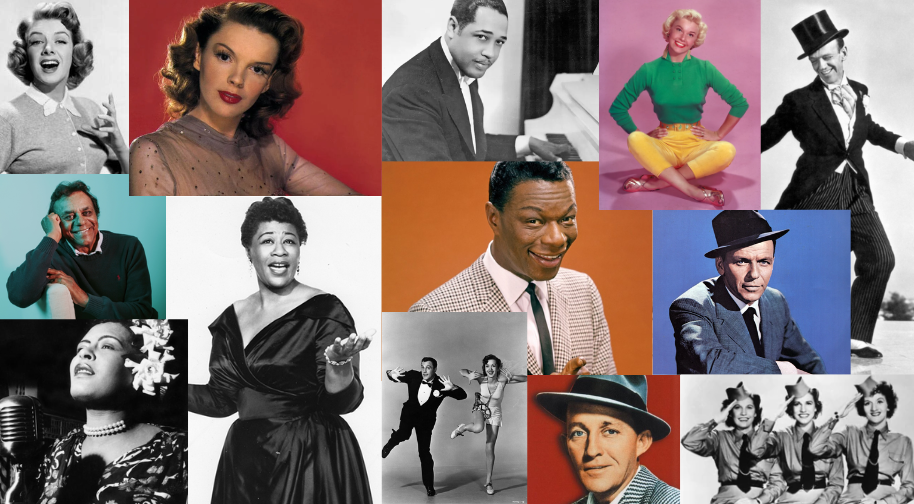
Experience Curator Special Access
Thank you for visiting the Great American Songbook Foundation! We're excited to work together as we welcome visitors to the Central Indiana community and share with them the music and history of America’s enduring soundtrack. To continue exploring the Songbook or learn more about the artists represented throughout the Hotel Carmichael, we invite you to explore this page curated just for you!
Our staff is also always happy to help answer any questions or point you in the right direction as you explore this music history. Come back and visit us weekdays (10 am - 4 pm) and make sure to follow us on social media @songbookfoundation for continuing resources and updates on all things Songbook!
Exhibit take-aways:
The exhibit you explored today is only one of many the Songbook Foundation has developed over the last decade. Our exhibitions are all widely available online and a great resource to learn about Songbook history. We also encourage you to take some time to learn about your quiz results and listen to the music of the 1920s artist and 2020s artist recommended to you by your quiz color.
Quick Review:
What is the Great American Songbook? The Great American Songbook consists of enduring standards, the songs that are played and sung over and over by multiple generations. These songs have a timeless meaning and resonance, whether they are days or decades old. It is not an actual book, but refers to an ever-growing catalog of American music.
The foundational era of the Songbook consists of the most important and influential American popular songs and jazz standards (sometimes referred to as “American Standards”) written between the 1920s and the 1960s that were created for Broadway theatre, musical theatre, and Hollywood musical film. Learn more with founder and 5-time GRAMMY nominee, Michael Feinstein.
Artist Spotlights

Cole Porter (1891-1964): A gifted composer and lyricist, Indiana-born Cole Porter created songs like "Night and Day," and the music for Broadway shows such as Anything Goes and Kiss Me, Kate. Porter's productions introduced songs that were musically complex with witty, urbane lyrics that audiences loved. Songs such as "You Do Something to Me," "Love for Sale," "Night and Day," "Anything Goes," "In the Still of the Night," "Begin the Beguine," "You'd Be So Nice to Come Home To," and "I Get a Kick Out of You" remain popular standards today and have been recorded by well-known artists from around the globe including Fred Astaire, Frank Sinatra, Ella Fitzgerald, U2, Elvis Presley, Sheryl Crow, Diana Krall, Michael Bublé, Alanis Morrissette, and Michael Feinstein. Cole Porter is a member of the Songbook Hall of Fame.

Doris Day (1922 - 2019): Known for her sweet singing voice, wholesome image and passion for animal rights advocacy, singer and actor Doris Day became a Hollywood icon in the '50s and '60s. Her rendition of "Que Sera, Sera" still echoes after more than 60 years. She recorded her first hits, "Sentimental Journey" and "My Dreams Are Getting Better All The Time" with The Les Brown Band before she went solo with Columbia Records, a contract which spanned two decades and over 650 recordings. Day also led a 20-year Academy Award-winning career as a motion picture actress starring in films of many genres, including musicals, comedies, dramas and thrillers alongside actors like Rock Hudson, Cary Grant, Frank Sinatra and others. Doris Day is a member of the Songbook Hall of Fame and she has received the Presidential Medal of Freedom.
- Explore the Steve Madrick Collections Highlight to see some of Day's postcards housed in the Songbook Library & Archives
- Listen to Doris Day

Billie Holiday (1915 - 1959): Billie Holiday (notably referred to as "Lady Day") first rose to prominence in the 1930’s with a unique style that reinvented the conventions of modern singing and performance. More than 80 years after making her first recording Billie’s legacy continues to embody what is elegant and cool in contemporary music. Holiday’s complicated life and her genre-defining autobiography “Lady Sings the Blues” made her a cultural icon. The evocative, soulful voice which she boldly put forth as a force for good, turned any song she sang into her own. Today, Billie Holiday is remembered for her musical masterpieces ("Strange Fruit," "God Bless This Child," "I'll Be Seeing You," "I Love My Man"), her songwriting skills, creativity and courageous views on inequality and justice.

James F. Hanley (1892 - 1942): Another Indiana-born songwriter, James F. Hanley is a name that you might not know, but he certainly left a lasting legacy here in the Hoosier state for one particular tune, "(Back Home Again in) Indiana." From Vaudeville accompanist to Broadway and Hollywood musicals, he worked with notable collaborators such as B.G. De Sylva, Edward Madden, Eddie Dowling, Percy Wenrich, Theodore Morse and Ballard MacDonald on hit songs like “The Little White House (At the End of Honeymoon Lane)”, “Gee, But I Hate to Go Home Alone”, “Rose of Washington Square”, “Second Hand Rose”, “Zing! Went the Strings of My Heart”, “Dreams for Sale” and many others.
- Learn more about James F. Hanley
- Listen to Jim Nabors' last "(Back Home Again in) Indiana" at the Indy 500

Julie London (1926 - 2000): Born Julie Peck to a song-and-dance duo that performed in vaudeville, she started singing on her parents' radio show and started working in movies in the 1940s, after changing her name to London. She appeared in nearly two dozen motion pictures during the 1940s and '50s, starring in such films as Task Force (1949), The Fat Man (1951), Man of the West (1958), and A Question of Adultery (1959). Her hit record with the 1950s single "Cry Me a River," sold 3 million copies and remained in demand into the 1960s. She also sang the song in the 1956 Jayne Mansfield film The Girl Can't Help It. London recorded her last album, Easy Does It, in 1967 and went on to gain renewed fame on the small screen, co-starring on Emergency! during its five-year run on NBC before retiring from show business.

Noble Sissle (1889 - 1975): Noble Sissle was born in Indianapolis on July 10, 1889 and eventually attended Butler University. In 1915, Sissle met James Hubert "Eubie" Blake; they formed a songwriting partnership with Blake focusing on music and Sissle on lyrics. Their first song "It's All Your Fault" was introduced by Sophie Tucker and became a hit. Sissle and Blake's big break was the musical Shuffle Along, which became the biggest hit of the 1921 season and introduced such songs as "I'm Just Wild about Harry," "Love Will Find a Way," "Baltimore Buzz," and "Gypsy Blues." From the mid-1930s to mid-1950s, Sissle (who became known as the unofficial mayor of Harlem) led his own Noble Sissle Orchestra, touring the U.S. Sissle and Blake's last collaboration was the 1968 composition, "Didn’t The Angels Sing For Martin Luther King," honoring Dr. King and assigning royalties to the King Foundation.
- Learn more about Noble Sissle from the Library of Congress
- Watch the 70th Anniversary Tony Awards performance of the 2016 adaptation of Shuffle Along, or, the Making of the Musical Sensation of 1921 and All That Followed

Carmen Miranda (1909 - 1955): Carmen Miranda was a Portuguese-born Brazilian samba singer, Broadway actress and Hollywood film star who was popular from the 1930s to the 1950s. A 1930 recording catapulted her to national stardom and cemented her status as the premiere interpreter of the samba genre. In 1939, Lee Shubert, a Broadway businessman, offered Carmen Miranda an eight-week contract to perform in The Streets of Paris on Broadway. In 1940, she made her first Hollywood film, Down Argentine Way, was voted the third most popular personality in the United States and was invited to sing and dance for President Franklin Roosevelt. In 1943, Miranda starred in The Gang's All Here, which was noted for its use of musical numbers with the fruit hats that were to become Miranda's trademark. By 1945, she was the highest paid woman in the United States and she went on to make a total of fourteen Hollywood films between 1940 and 1953.
- Learn more about Carmen Miranda with our friends at the Smithsonian
- Listen to Carmen Miranda on Spotify

Paul Dresser (1857 - 1906): Paul Dresser was born in Terre Haute, Indiana just before the beginning of the Civil War. As a songwriter, Dresser relied heavily on the sentimental themes of home, boyhood, mother, patriotism, and romance. By the late 1890’s, he was one of the most successful songwriters producing such hits as “Wide Wings”, “The Letter That Never Came”, “My Gal Sal”, “On the Banks of the Wabash” (which became Indiana’s state song), “The Blue and the Gray”, and many others. He composed and published his more than 100 songs, 25 of which hit the Billboard top twenty. His legacy lives on through the 1942 biopic My Gal Sal as well as the Indiana tributes including the Paul Dresser Memorial Association established in 1922. In 1967, the Indiana General Assembly designated Dresser’s birth home a State Shrine and Memorial, and the National Music Council listed it as "A Landmark of American Music".
- Take a look at Paul Dresser's birthplace with our friends at Indiana Memory
- Learn more about Paul Dresser with the Songwriter's Hall of Fame
Stay Connected
To stay up-to-date on your Songbook knowledge, sign up for our eNews or explore our website for continuing resources!



